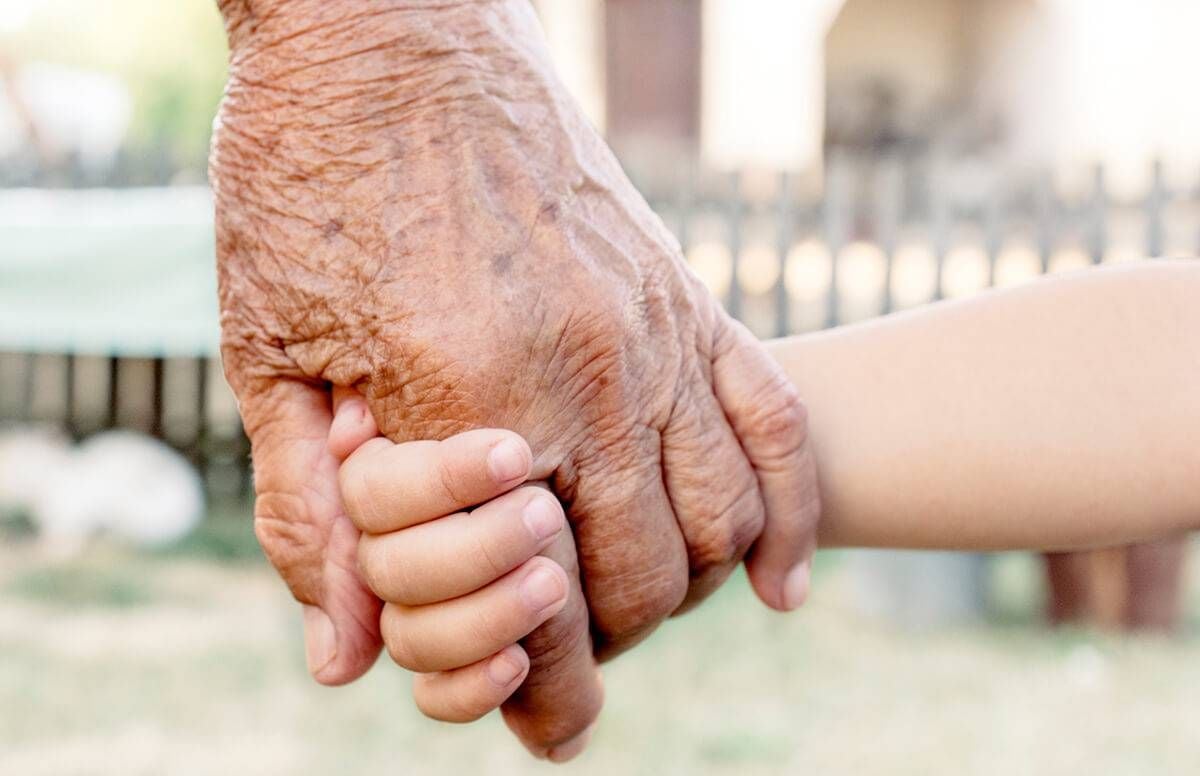Grandparents Stepping Up for Kids in Opioid Crisis
An Influencer in Aging says they need more support for their efforts
(Next Avenue invited our 2017 Influencers in Aging to blog about the one thing they would like to change about aging in America. One of the posts is below; we will be publishing others regularly.)

Last week, the President declared the opioid epidemic a national crisis. This long overdue step is critical. But to 2.6 million grandparents raising grandchildren across the country, it will be recognized as just that: one step.
For decades, grandparents and other relatives have been stepping up to raise children and keep them out of foster care. And they are doing it with little to no support.
Grandparents: A Safety Net for Kids
The opioid crisis is catapulting these families into the spotlight as rescuers and silent saviors of our young. They are stepping forward in droves as the number of children entering the child welfare system is increasing. Nearly 30 percent of children in foster care are living with relatives. And for every child in foster care with relatives, there are 20 being raised by grandparents or other relatives outside of the foster care system.
Their role in nurturing and protecting our nation’s babies, children and youth is undeniable.
Compared with children in foster care with non-relatives, children in foster care with relatives have more stable and safe childhoods, are more likely to stay connected to brothers and sisters and are more likely to report always feeling loved.
They have roots.
‘More Love There’
Chad Dingle understands this well. “One thing I have noticed is most people go to Grandma’s house and get spoiled, but for me, it was the only safe place I had,” he explains. “Getting to live with Grandma was like ‘going to Grandma’s house’ all the time. I had more love there than anywhere else in my life.”
Chad was fortunate. His grandmother had the resources and connections to provide for him. She could get him the help he needed to overcome the trauma he experienced during his years in the care of parents who were addicted to drugs.
Others are not so lucky.
One in five grandparents raising grandchildren lives below the poverty line. One in four has a disability. Most are thrust into the role suddenly. They are not prepared for that call in the middle of the night telling them to pick up the children or the kids will end up in foster care.
At a moment’s notice, these grandparents are forced to navigate unfamiliar, complex systems to help meet the challenges of children who have come into their home, often, like Chad, after experiencing significant, sustained trauma.
A Help Through Trauma
This is why grandfamilies are so important. Research shows that grandparents and other relatives have a special protective role with these children that helps mitigate trauma. When they can’t stay with their parents, children raised by a caring relative have fewer behavioral problems, better mental health and more successful long-term outcomes.
They know they belong.
But these grandparents can’t do it alone. They need and deserve support to help the children reach their greatest potential.
Grandparent Caregivers Need Assistance
Grandparent caregiver Jan Wagner explains, “One thing I know to be true: you can’t love away the effects of trauma from neglect and abuse. Our children need the same amount of intensive therapy and services as traditional foster placements and we, as their caregivers, desperately need the same to help them heal.”
Getting these families that help means comprehensive change.
As the administration moves forward with plans to address the opioid crisis, our leaders must recognize that this declaration, while a critical step, will not stop the epidemic. Nor will it heal the trauma that opioids and a long history of drug epidemics have left in their tracks.
What Government Must Do
To achieve success in combating the opioid epidemic and addiction, we must invest in drug treatment efforts to help those struggling with addiction.
But with 175 people dying from overdoses each day, we must also invest in the younger and older people they are leaving behind.
Congress and the administration must:
- Reform our child welfare system to ensure children and grandfamilies get the support they need
- Invest in trauma-informed care and prevention programs
- Protect health care for young and old, including Medicaid, Medicare and the Children’s Health Insurance Program
- Ensure that federal support through programs like SNAP and the Social Services Block Grant will continue to be available so grandparents can provide for the basic needs of the children they are protecting and nurturing
We Know Who the Heroes Are
While declaring the opioid crisis a national emergency, the President said we must face the opioid epidemic as a “national family.” He called on us to teach young people not to start using drugs and sang the praises of everyday “heroes” fighting this crisis on the ground.
Let’s remember that many of those heroes come with gray hair, a home full of love and an overflowing commitment to provide for their grandchild.
Our nation’s grandparents give their all to pick up and re-weave the lives of our nation’s children. The Administration and Congress owe it to our nation’s oldest and youngest to do the same.

